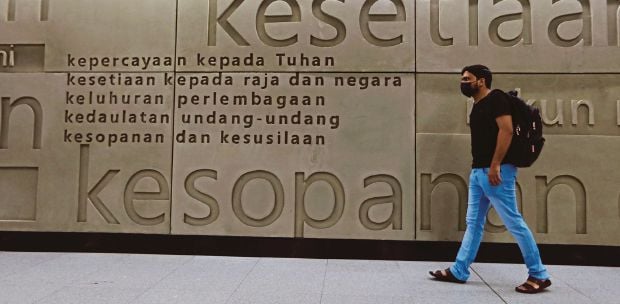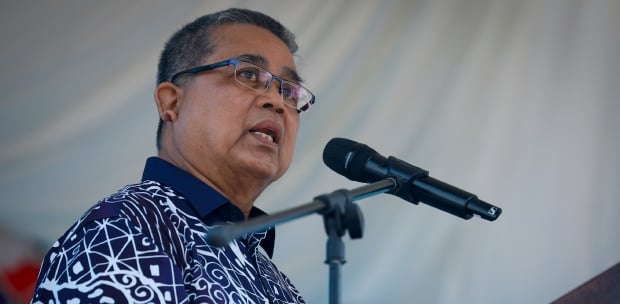ADAM Makos' 2012 book, A Higher Call, recounts an amazing story of two fighter-pilots during World War 2.
This true story offers insights for the development of the proposed Rukun Negara-based subject for schools.
It was Dec 20, 1943. An American pilot, Charlie Brown, and his crew were returning to base after bombing a German munitions factory. They were hoping to get home for Christmas. However, en route they came under heavy anti-aircraft fire which left them badly injured, and one dead.
Having lost three of its four engines, the bomber, a B-17, was barely aloft.
It was an easy target for any German fighter-pilot. One spotted the sputtering US B-17. He was Franz Stigler, a 26-year-old conscript to Hitler's much-feared air force, the Luftwaffe.
His piloting skills were exceptional. He had already shot down 22 enemy aircraft before encountering his vulnerable prey. All he needed was to shoot this one down to claim the coveted Knight's Cross, the highest honour for bravery for a German soldier.
As Stigler manoeuvred his plane to blast the Americans out of the sky, he sensed something was amiss. The enemy was not returning fire. As he drew parallel to it, Stigler saw the enemy soaked in blood. Stigler immediately mouthed the course that the US bomber should take and wildly signalled in the direction of Sweden.
Not fathoming his noble intentions, the injured gunner was struggling to reach the gun turret.
Not wanting to be fired upon, or be spotted helping an enemy, Stigler quickly looked Charlie Brown in the eye, saluted him and peeled away, much to the wounded crew's astonishment.
Many years after the war, Stigler was asked why he did what he did. He recalled his commanding officer, Lieutenant Gustav Roedel, telling him that they did not fight the war by the rules of the enemy: "You fight by rules to keep your humanity."
Stigler felt that to shoot a helpless enemy went against the values of chivalry and honour.
There is something worse than death — the loss of one's humanity. Stigler's compassion saved the lives of the 10 US airmen.
Stigler's action in the sky symbolises the value of compassion shown even to enemies. It resonates with our aphorism, "Masyarakat Penyayang", or caring society.
As the government seeks to reintroduce the Rukun Negara-based subject in schools, compassion and kindness should be emphasised among the virtues of our multi-racial society.
A caring society goes beyond inter-personal and inter-ethnic relations. It also is about inter-generational kindness when we practise sustainable development and preserve precious live-giving resources for posterity.
Inter-generational kindness, too, means that we do not indiscriminately ratch up public debt only to be repaid by our children and their children.
By educating our young on these values, they will not depart from them when they grow up.
This is because unlike laws, core values modify behaviour without any force of sanction.
Once assimilated, these values become our moral compass. We use them to measure every action we take and decide on its rightness.
But the assimilation of these values to the point that they become second nature is critical.
Ellen DeGeneres, an American comedian, has been hosting a popular talk-show since 2003.
Her mantra is "Be kind". But now she stands accused of abusing her crew.
Despite her apologies, her show's rating has plummeted so much that DeGeneres has hinted she may scrap it altogether.
Kindness is all the more important during these trying times.
Remember Cinderella? Despite her stepmother's and half-sisters' cruelty, she never wavered from showering them with kindness.
That kindness, paired with a little bit of magic, earned her Prince Charming's love to become the queen of the kingdom.
As the narrator of Cinderella said: "Where there is kindness, there is goodness. And where there is goodness, there
is magic."
The writer is a professor at the Putra Business School






